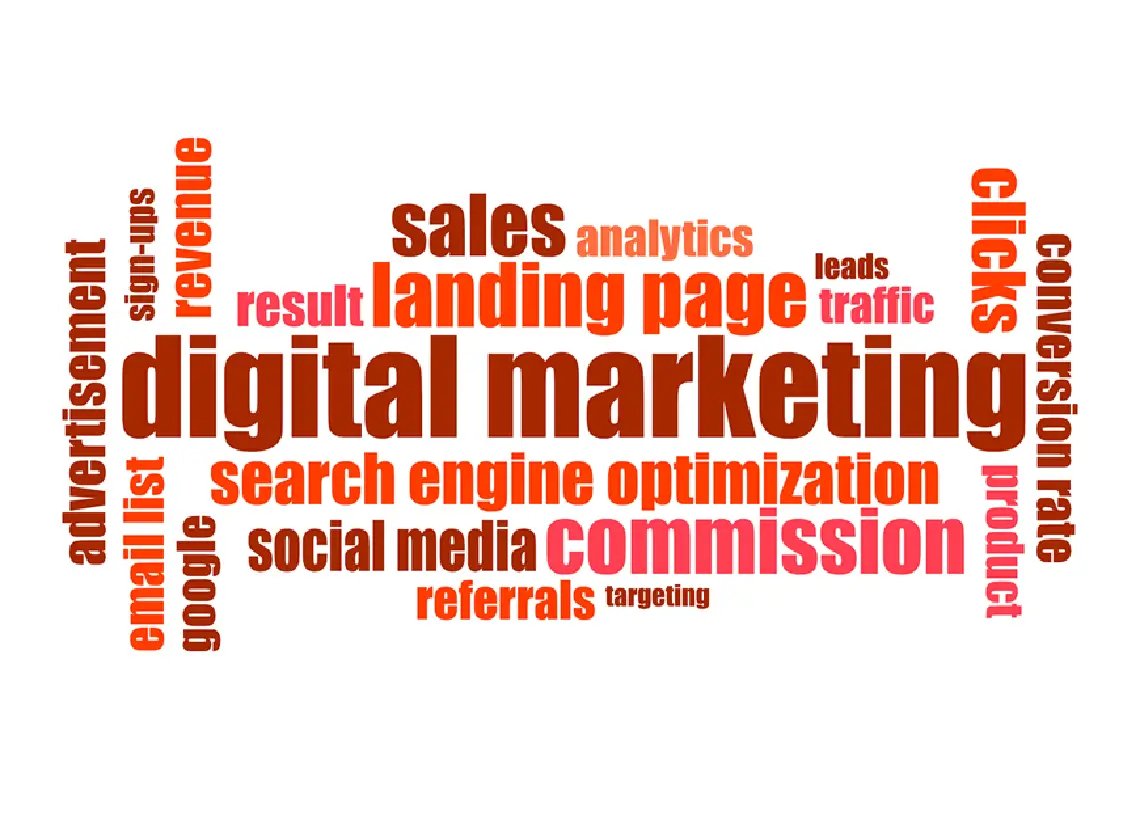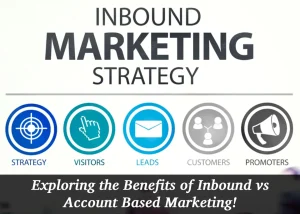As technology continues to evolve, so does the way businesses market and promote their products and services. Web digital marketing is an ever-evolving field that requires an understanding of the latest trends and techniques to remain competitive. In this blog post, we’ll take a deep dive into web digital marketing and see what it is, the different types of web digital marketing, the benefits and challenges of using it, and the key elements of a successful web digital marketing strategy.
What is web digital marketing?
Web digital marketing is the use of digital technologies, such as mobile phones, computers, and the internet, to promote and market products and services. It is a form of marketing that is not limited to one specific type of platform, but instead is used to reach a broad audience through various channels. Web digital marketing can include search engine optimization (SEO), social media marketing, content marketing, email marketing, affiliate marketing, and more.
Web digital marketing is different from traditional advertising and marketing because it is more interactive and focused on providing customers with a personalized experience. This means that web digital marketing is not just about pushing out ads and content, but also about engaging customers and building relationships. By taking a more customer-centric approach, web digital marketing is able to establish trust, loyalty, and brand recognition.
Types of web digital marketing
There are many different types of web digital marketing that businesses can use to reach their target audience. Here are some of the most popular web digital marketing strategies:
- Search engine optimization (SEO): SEO is a process of optimizing web content so that it can be found more easily by search engines. By optimizing a website’s content and structure, businesses can increase their chances of appearing in search engine results pages (SERPs).
- Content marketing: Content marketing is the creation, promotion, and distribution of content that is designed to attract and engage customers. Content can include blog posts, videos, podcasts, infographics, and more.
- Social media marketing: Social media is one of the most powerful tools for web digital marketing. Through social media, businesses can reach a large audience, build relationships, and engage customers.
- Email marketing: Email marketing is another powerful tool for web digital marketing. By sending emails to customers, businesses can keep them updated on new products and services, promotions, and more.
- Affiliate marketing: Affiliate marketing is a form of performance-based marketing in which businesses reward affiliates for generating leads or sales. Affiliates can be individuals or other businesses who promote a company’s products or services.
Benefits of web digital marketing
Web digital marketing offers many benefits for businesses, including:
- Cost-effectiveness: Web digital marketing is much more cost-effective than traditional marketing methods. With web digital marketing, businesses don’t have to invest in printing, postage, and other overhead costs.
- Wide reach: Web digital marketing can reach a much wider audience than traditional marketing methods. By leveraging the internet and social media, businesses can reach potential customers all over the world.
- Targeted campaigns: Web digital marketing allows businesses to target specific audiences with tailored campaigns. By leveraging data and analytics, businesses can customize their campaigns to the interests and preferences of their target audience.
- Data-driven insights: Web digital marketing provides businesses with valuable data and insights that can be used to improve their campaigns and strategies. This data can be used to optimize content and target audiences more effectively.
- Increased brand recognition: Web digital marketing can help businesses increase their brand recognition and visibility. By engaging customers and creating relationships, businesses can build loyalty and trust in their brand.
Challenges of web digital marketing
While web digital marketing offers many benefits, it also comes with some challenges. Here are some of the most common challenges of web digital marketing:
- Information overload: With so much content available online, it can be difficult for businesses to stand out and be noticed. This can lead to information overload and make it hard for businesses to cut through the noise.
- Competition: With so many businesses competing for attention online, it can be hard for businesses to stand out and be noticed.
- Data security: Businesses must be cautious when it comes to collecting and storing customer data. With the rise of cybercrime and data breaches, businesses must ensure that their data is secure.
- Lack of resources: Many businesses don’t have the resources or expertise to effectively use web digital marketing. This can lead to costly mistakes and delays in launching campaigns.
Key elements of web digital marketing
In order to be successful with web digital marketing, businesses must understand the key elements of a successful strategy. These elements include:
- Research: Understanding the target audience and their preferences is essential for web digital marketing success. Businesses must conduct research to gain insights into their target audience and understand how to reach them.
- Content: Creating quality content is essential for engaging customers and building relationships. Content should be tailored to the target audience and provide value.
- Analytics: Analytics are essential for understanding how campaigns are performing and what changes can be made to improve results.
- Engagement: Engagement is key for building relationships and trust with customers. Businesses should make sure to engage customers on a regular basis.
- Optimization: Optimizing content and campaigns is essential for improving results. Businesses should make sure to optimize web content, campaigns, and strategies on a regular basis.
How to develop a web digital marketing strategy
Developing a successful web digital marketing strategy requires careful planning and execution. Here are some tips for developing a successful web digital marketing strategy:
- Define objectives: Before launching a web digital marketing campaign, businesses must define their objectives. What do they want to achieve with their campaign? What are their goals?
- Research the target audience: It is important to understand the target audience in order to create effective campaigns. Businesses should research their target audience to gain insights into their preferences and interests.
- Develop a content strategy: Content is key for engaging customers and building relationships. Businesses should develop a content strategy that is tailored to their target audience.
- Focus on SEO: SEO is essential for ensuring that content is seen by the right people. Businesses should optimize their web content and use relevant keywords to increase visibility and improve search engine rankings.
- Analyze and optimize: It is important to analyze and optimize campaigns on a regular basis. Businesses should use data and analytics to track performance and make changes as needed.
The importance of SEO in web digital marketing
Search engine optimization (SEO) is an essential part of web digital marketing. SEO involves optimizing content so that it can be found more easily by search engines. By optimizing content and using relevant keywords, businesses can increase their visibility and improve their search engine rankings. This can lead to more traffic, leads, and sales.
Optimizing content for SEO involves a combination of on-page and off-page optimization. On-page optimization involves making changes to the content itself, such as using keywords, formatting content, and optimizing images. Off-page optimization involves optimizing content to build links, such as guest blogging and link building.
Online advertising and web digital marketing
Online advertising is an important part of web digital marketing. Online advertising can be used to reach a large audience and generate leads and sales. There are many different types of online advertising, such as pay-per-click (PPC) advertising, display advertising, and native advertising.
PPC ads are one of the most popular forms of online advertising. With PPC ads, businesses pay for each click on their ads. This can be a cost-effective way to reach a large audience and generate leads and sales.
Display ads are another popular form of online advertising. Display ads are typically placed on websites and can be used to target specific audiences.
Native advertising is another type of online advertising. Native ads are designed to blend in with the content of a website and can be used to target specific audiences.
Web digital marketing tools and resources
There are many different tools and resources available to help businesses with their web digital marketing efforts. Here are some of the most popular web digital marketing tools and resources:
- Analytics platforms: Analytics platforms, such as Google Analytics and Adobe Analytics, are essential for tracking and analyzing data. These platforms provide valuable insights into website traffic, user behavior, and more.
- Content management systems (CMS): Content management systems (CMS) are essential for creating and managing content. Popular CMSs include WordPress, Drupal, and Joomla.
- Social media management platforms: Social media management platforms, such as Hootsuite and Buffer, can be used to manage multiple social media accounts from one dashboard.
- Email marketing platforms: Email marketing platforms, such as MailChimp and Constant Contact, can be used to send and manage email campaigns.
- SEO tools: SEO tools, such as SEMrush and Moz, can be used to track keyword rankings and optimize content for SEO.
Conclusion
Web digital marketing is an ever-evolving field that requires an understanding of the latest trends and techniques in order to remain competitive. In this blog post, we took a deep dive into web digital marketing and explored what it is, the different types of web digital marketing, the benefits and challenges of using it, and the key elements of a successful web digital marketing strategy. We also looked at the importance of SEO in web digital marketing and discussed some of the most popular web digital marketing tools and resources. By understanding web digital marketing and leveraging the right tools and resources, businesses can create effective web digital marketing campaigns that drive leads and sales.
If you’re looking to get started with web digital marketing, our team of experts at [name of the company] can help. We specialize in web digital marketing and can help you develop a successful strategy that will help you reach your goals. Contact us today to learn more.




